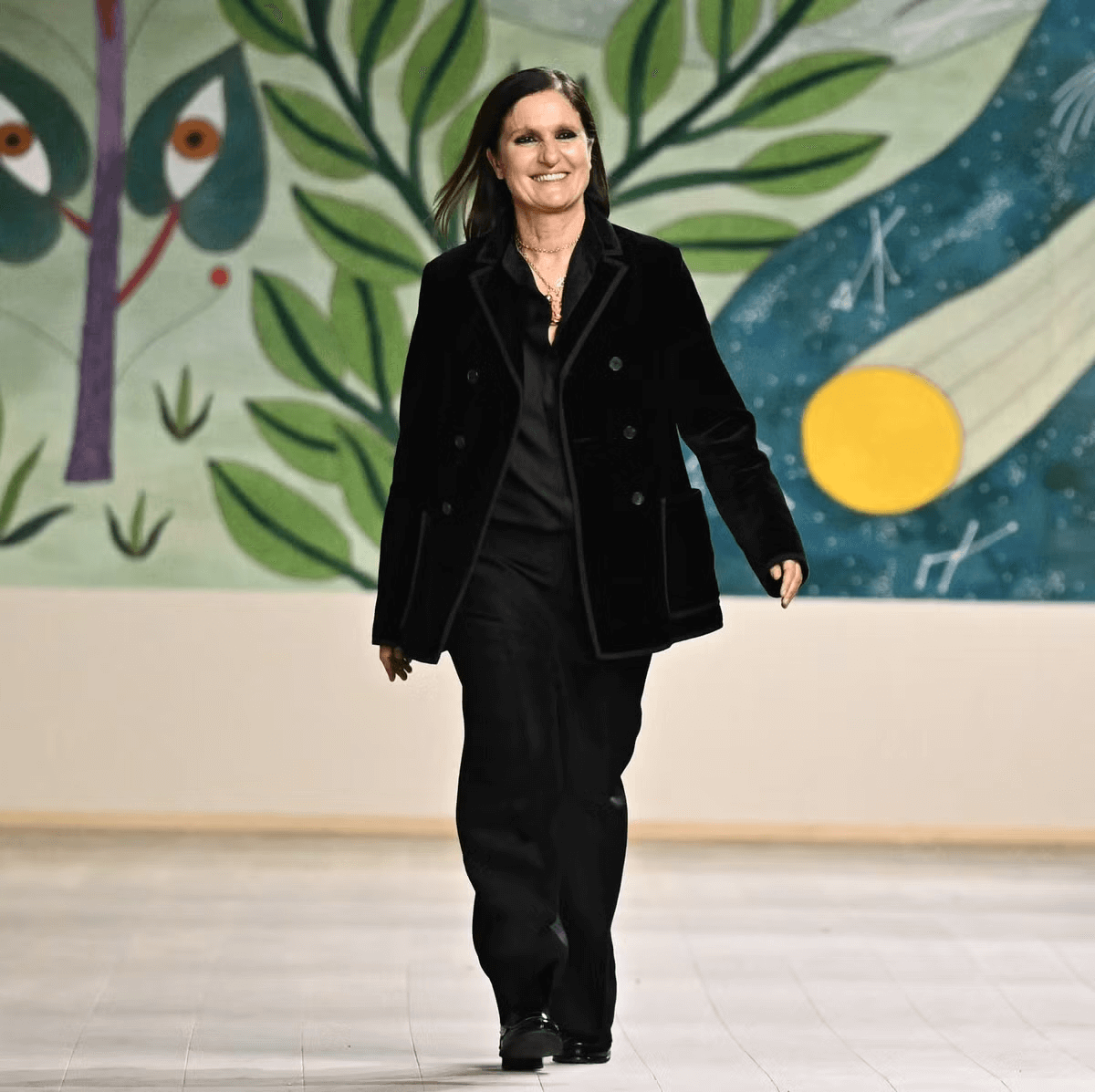

In a landmark moment for the fashion world, Maria Grazia Chiuri has officially stepped down as artistic director of Dior’s women’s collections, ending a historic nine-year reign that redefined the identity of one of fashion’s most revered maisons. Her departure, announced shortly after the unveiling of Dior’s Cruise 2026 collection in Rome, marks the close of an era that fused couture with culture, activism with artistry, and commerce with craft. Since becoming the first woman to lead Dior’s women’s division in 2016, Chiuri has not only reshaped the house’s design language but also turned it into a platform for feminist discourse and global storytelling.
Chiuri’s debut collection in 2017 made headlines with a simple but powerful white T-shirt emblazoned with the words, “We Should All Be Feminists,” a nod to Chimamanda Ngozi Adichie’s iconic essay. It was a bold statement in the traditionally conservative world of haute couture, and it set the tone for everything that followed. From embroidered slogans and manifestos to full-blown runway spectacles designed in collaboration with feminist artists like Judy Chicago and Mickalene Thomas, Chiuri used Dior’s global stage to champion women’s voices. She didn’t stop at messaging–she redefined who fashion celebrated. Under her watch, Dior’s runways and campaigns featured a more inclusive cast, and she spotlighted traditional crafts by female artisans from Mexico, India, Ukraine, and beyond, ensuring that global women’s work was seen and respected in the elite world of Parisian fashion.
Her tenure also brought massive commercial success. Dior’s revenue grew from €2.2 billion in 2017 to an impressive €9.5 billion by 2023, according to LVMH’s reports. Key to this surge was her ability to balance concept with commerce. Chiuri revived archival icons like the Saddle Bag and Book Tote, transforming them into streetwear essentials beloved by influencers and celebrities. She also changed the physical feel of Dior–replacing stilettos with combat boots, sneakers, and Greco-Roman sandals, and designing pieces meant for modern, empowered movement rather than mere spectacle. Her clothes often blended classical Dior silhouettes with real-world utility, creating collections that were both wearable and poetic.
Fittingly, her final show–Dior Cruise 2026–was a homecoming. Staged at the Villa Albani Torlonia in her native Rome, the collection was an ode to ancient goddesses, mythology, and the eternal beauty of classical art. Draped in togas, robed in laurel motifs, and framed by centuries-old Roman sculptures, her models embodied a return to origin and myth. It was not just a farewell–it was Chiuri’s final artistic thesis for Dior: that femininity, strength, and heritage are eternally intertwined. The show closed with a standing ovation and widespread critical praise, a poetic culmination of a vision that had always blended fashion with philosophy.
Behind the scenes, Chiuri’s exit had been the subject of speculation since late 2024. While no official successor has been named, industry whispers point to Jonathan Anderson–recently appointed as Dior Men’s creative director and the visionary behind Loewe–as a possible contender. Other names floated include former Alexander McQueen creative head Sarah Burton and even Hedi Slimane, though the latter remains a long shot. Whoever takes the reins will inherit not just a legacy of aesthetic beauty, but the weight of a political and cultural revolution Chiuri brought to the brand.
As for Chiuri’s next chapter, it remains under wraps, but fashion insiders speculate that she may either launch her own eponymous label or pursue cultural and artistic collaborations outside the strict confines of seasonal collections. Given her passion for craft, heritage, and female empowerment, her trajectory could very well lead her into curatorial, philanthropic, or activist spaces that allow her to continue uplifting underrepresented voices in new formats.
Maria Grazia Chiuri didn’t just lead Dior, she transformed it. She made it matter in conversations beyond fashion, elevating it into a vehicle for social commentary, cross-cultural collaboration, and real-world impact. Her departure is not an end, but a punctuation mark at the close of one of the most important chapters in modern fashion history. Whoever steps in next will not only face the pressure of keeping the house at the top of the luxury pyramid but will also contend with the trail of intellectual depth and unapologetic feminism Chiuri leaves behind.



